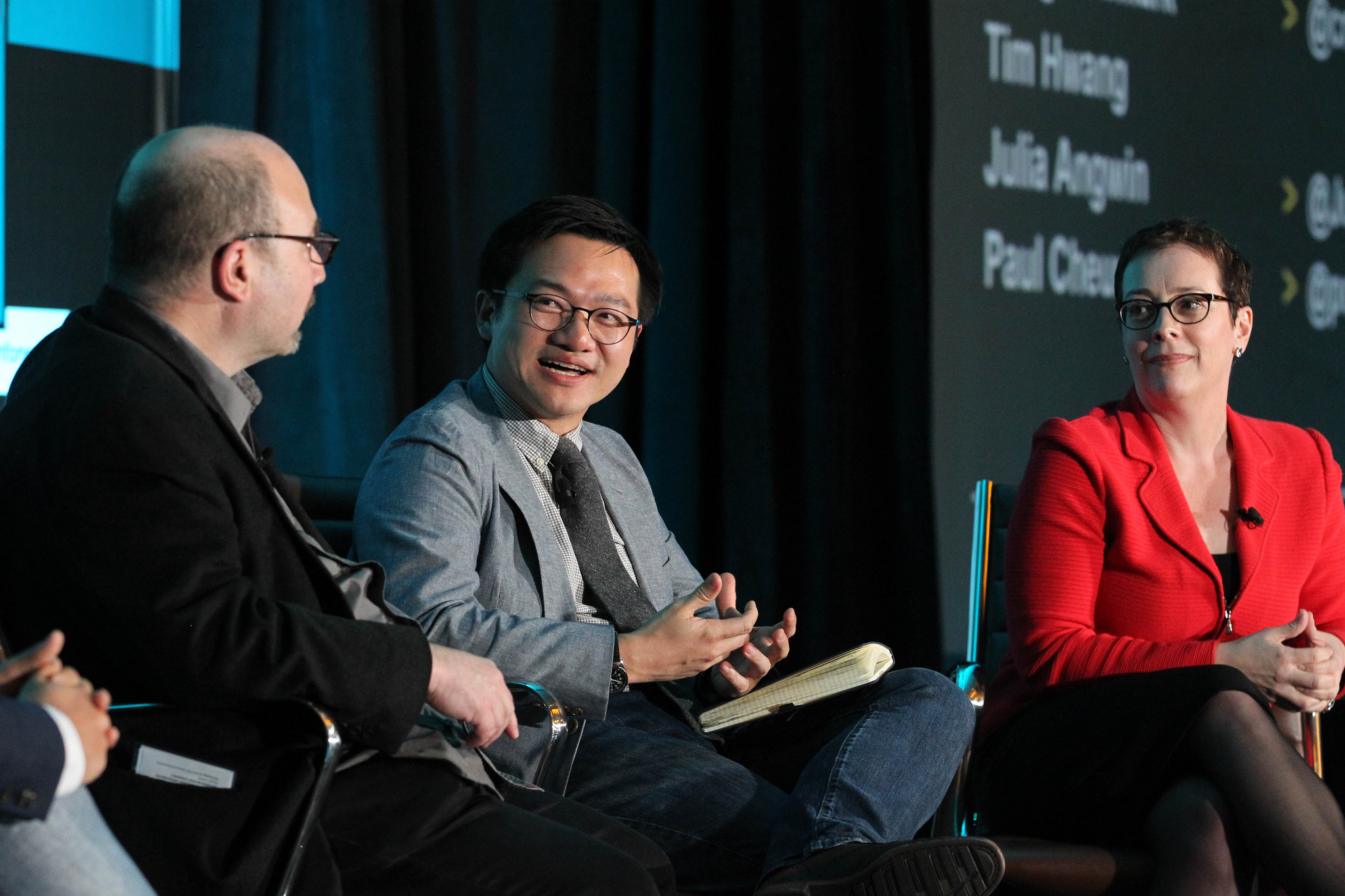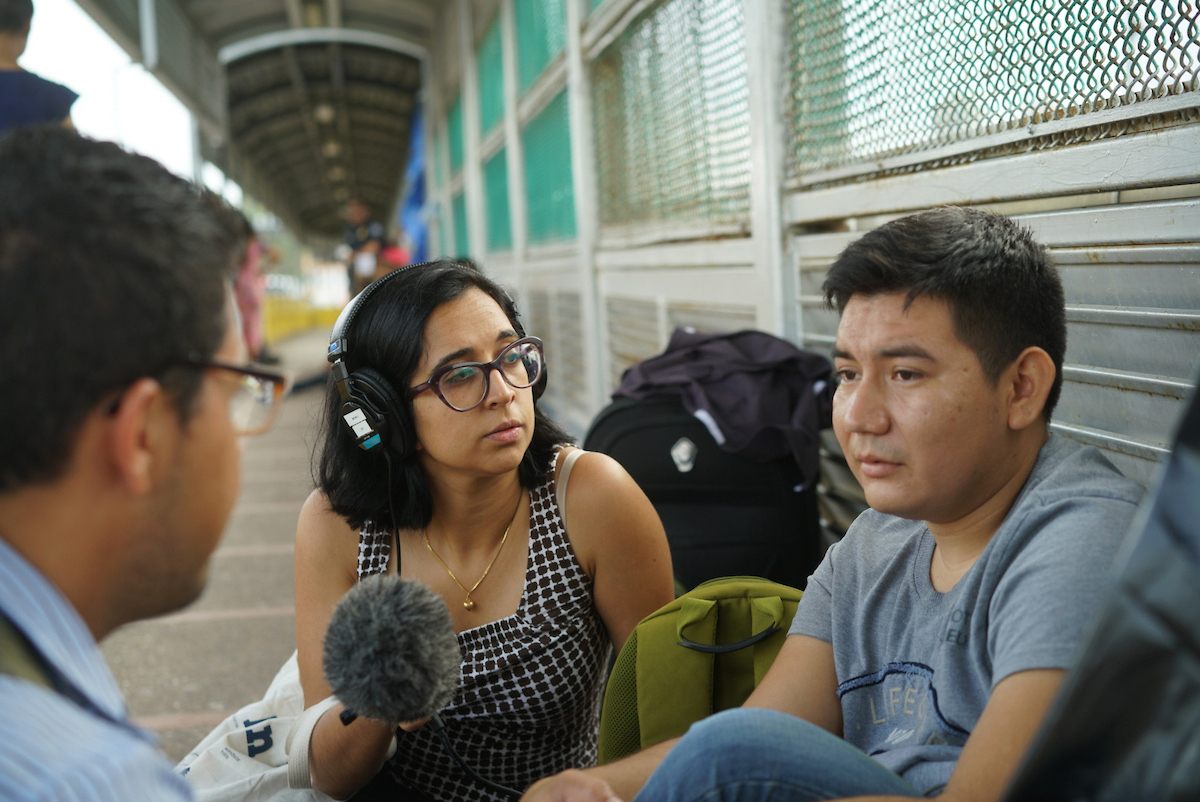
Announcing the Winners of the AI and the News Open Challenge
This blog post also appeared on the Ethics and Governance of Artificial Intelligence Initiative website.
We’ve been absolutely blown away by the interest and excitement around our AI and the News Open Challenge. After several months and the efforts of a small army of amazing reviewers to sift through the 500+ applications we received, we’re excited to finally announce the winners of the challenge today.
Since we launched the challenge back in September, the tricky questions at the intersection of machine learning and the news have only become more complex. Debates about the role of the news in shaping public understanding of machine learning and its societal implications continue to intensify. Questions loom over the role automation should play in augmenting the work of journalists. Whether machine learning-generated fakes will play a role in the future of efforts to manipulate the news and public discourse continues to be a widely discussed possibility.
The seven winners of our $750,000 challenge represent a portfolio of incredible organizations seeking to attack these problems from a number of different angles:
Chequeado – Chequeado, a veteran fact-checking organization based in Argentina, will be launching a new investigative series on the ethics of algorithms and the implications of automated decision making for Latin America.
Craig Newmark Graduate School of Journalism – Sandeep Junnarkar and his team at CUNY will be launching a program that trains community media journalists to uncover and analyze machine learning systems, with an eye towards producing a series of news pieces looking at the impact of these technologies on immigrants and low-income communities.
Seattle Times – The Seattle Times will run a year-long reporting project focused on the implications of machine learning and automation on work and labor. The project will aim to connect broader technological trends with the near-term, practical questions of who gets the gains from these technologies and how they are distributed.
MuckRock Foundation – The MuckRock Foundation will be building on its long-standing public records requests platform to launch Sidekick, a toolkit of machine learning classifiers that will support newsrooms and researchers in meeting the challenge posed by sifting through massive government document dumps.
Legal Robot – Legal Robot will develop a tool that will apply machine learning to quickly extract structured data from government contracts. This engineering effort will be paired with a campaign to request millions of city, county and state-level contracts from around the United States.
Tattle Civic Technologies – Tarunima Prabhakar and her team at Tattle will build a tool to support the efforts of fact-checkers working in India, specifically targeting the challenge of addressing misinformation on the WhatsApp platform. The tool will experiment with using machine learning for tasks like language detection and image matching, which are frequently needed in the fact-checking process.
Rochester Institute of Technology – Matt Wright and his team at RIT will experiment with techniques to assist researchers and the public in identifying evidence that a given piece of video or audio is a fake generated via machine learning. These techniques will then be field tested with journalists and media forensics experts that who are on the frontlines of identifying and evaluating media “in the wild.”
Congratulations to all the winners and thanks to everyone who participated in the open call!
You can read more about the projects in our press release. We’d also like to thank our partners at the MIT Media Lab and Harvard’s Berkman Klein Center for Internet & Society, in addition to our funders, the John S. and James L. Knight Foundation, Luminate Group, William and Flora Hewlett Foundation, and Reid Hoffman.
We’ll be posting updates from all the projects as they get rolling, so stay tuned at https://aiethicsinitiative.org/news for the latest. If you have any questions or are interested in getting put in touch with our winners, just drop me a line at [email protected].
We’d also like to thank the following people who took the time to join us in reviewing the applications. The pool of reviewers represents a diverse group of experts from the fields of journalism, technology, research and other disciplines: Amanda Levendowski, NYU Law; Amar Ashar, Berkman-Klein Center; Anthony Ortiz, MILA; Aron Pilhofer, Temple University; Cameron Hickey, Harvard Kennedy School ; Clarence Wardell, Results for America ; Clement Wolf, Google; Devin Gaffney, Crayon; Erik Reyna, The Washington Post; Geraldine Moriba, JSK Fellow at Stanford University ; Hong Qu, Harvard Kennedy School ; Jeremy Gilbert, The Washington Post ; Jessica Forde, Project Jupyter; Joy Bonaguro, Corelight; Justin Myers, Associated Press ; Kat Lo, University of California, Irvine ; Katyanna Quach, The Register ; Kim Fox, The Philadelphia Inquirer ; Lillian Ruiz, Civil Media ; Meredith Broussard, NYU ; Mi-Ai Parrish, MAP Strategies Group; Natalie Nzeyimana, Nuanced ; Nathan Olivarez-Giles, Apple ; Nicholas Hagar, Northwestern University
Tim Hwang is Director of the Ethics and Governance of AI Initiative at the Berkman-Klein Center and the MIT Media Lab
-
Journalism / Article
-
Technology / Article
-
Journalism / Press Release
Recent Content
-
Journalismarticle ·
-
Journalismarticle ·
-
Journalismarticle ·





